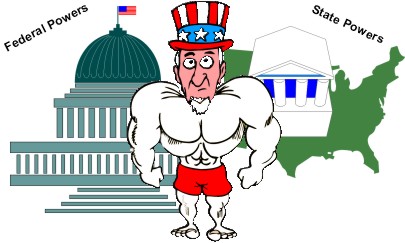Diplomatic strife between state and federal government reach another stage with each trying to curtail the freedom of another. State resistance to national policy is not anything new in United States of America. Missouri is just a new addition to the list. It has barred the central government to expand Medicaid in the state.
 Politicians believe that the 27 states would soon give the federal government a scope to extend their medical facilities. Then it accompanies a dozen other amenities. Under the Obamacare scheme, the federal government pays 100 per cent of the Medicaid expansion costs for the first 3 consecutive years and 90 per cent for the year to follow. The other states to refuse the deal are Florida, Texas etc. The medical expenditure could have turned out to be investment for the states. Many hospitals and business owners have worked hard for expanding their business assuming that the federal investment would soon generate the much-awaited employment. As per the law, if the states are unable to open health care exchanges then the Central will do so. This is what is happening in as many as 27 states.
Politicians believe that the 27 states would soon give the federal government a scope to extend their medical facilities. Then it accompanies a dozen other amenities. Under the Obamacare scheme, the federal government pays 100 per cent of the Medicaid expansion costs for the first 3 consecutive years and 90 per cent for the year to follow. The other states to refuse the deal are Florida, Texas etc. The medical expenditure could have turned out to be investment for the states. Many hospitals and business owners have worked hard for expanding their business assuming that the federal investment would soon generate the much-awaited employment. As per the law, if the states are unable to open health care exchanges then the Central will do so. This is what is happening in as many as 27 states.
History is suffused with examples of state engaged in continuous tension with the federal government. At the beginning in 1777, it was decided that the central government would have only limited powers. It will primarily deal with foreign policy and have no executive or judiciary system. But over the years, it was seen that this political arrangement did not yield any benefit. So, the Constitution was amended, resulting in the formation of a strong government, which is omnipotent enough to levy tax, implement law, regulate trade etc.
Evidently, it enhanced the tension already existing between the state and federal government. Under the leadership of Thomas Jefferson and James Madison, some of the states tried to nullify the power of federal government. But the cynical approach did not gain any popularity with the Supreme Court and other states. The former perpetually putting it that the state does not have the authority to violate federal law.
After the civil war in mid 90s, many southern states refused to be a part of the union to preserve slavery. They quite successfully nullified the 15th Amendment providing universal adult suffrage to the blacks. After this era, the challenges to the federal government lost its edge and sharpness, though it continued. Like, in Virginia the schools were closed as a mark of protest against the federal system. In Alabama, the governor George Wallace did not follow the central rule. So, he had to be forced away by the National Guardsmen to allow entry of the first black students.
Not just Obamacare received a setback but the 2002 law No Child Left Behind also received opposition. As per the law the weak students were suppose to go through a remedial procedure. But the states governments objected to it under the pretext that the cost of implementation was a burden and some excused that it infringed with the state responsibilities.






























No Comments
Leave a comment Cancel